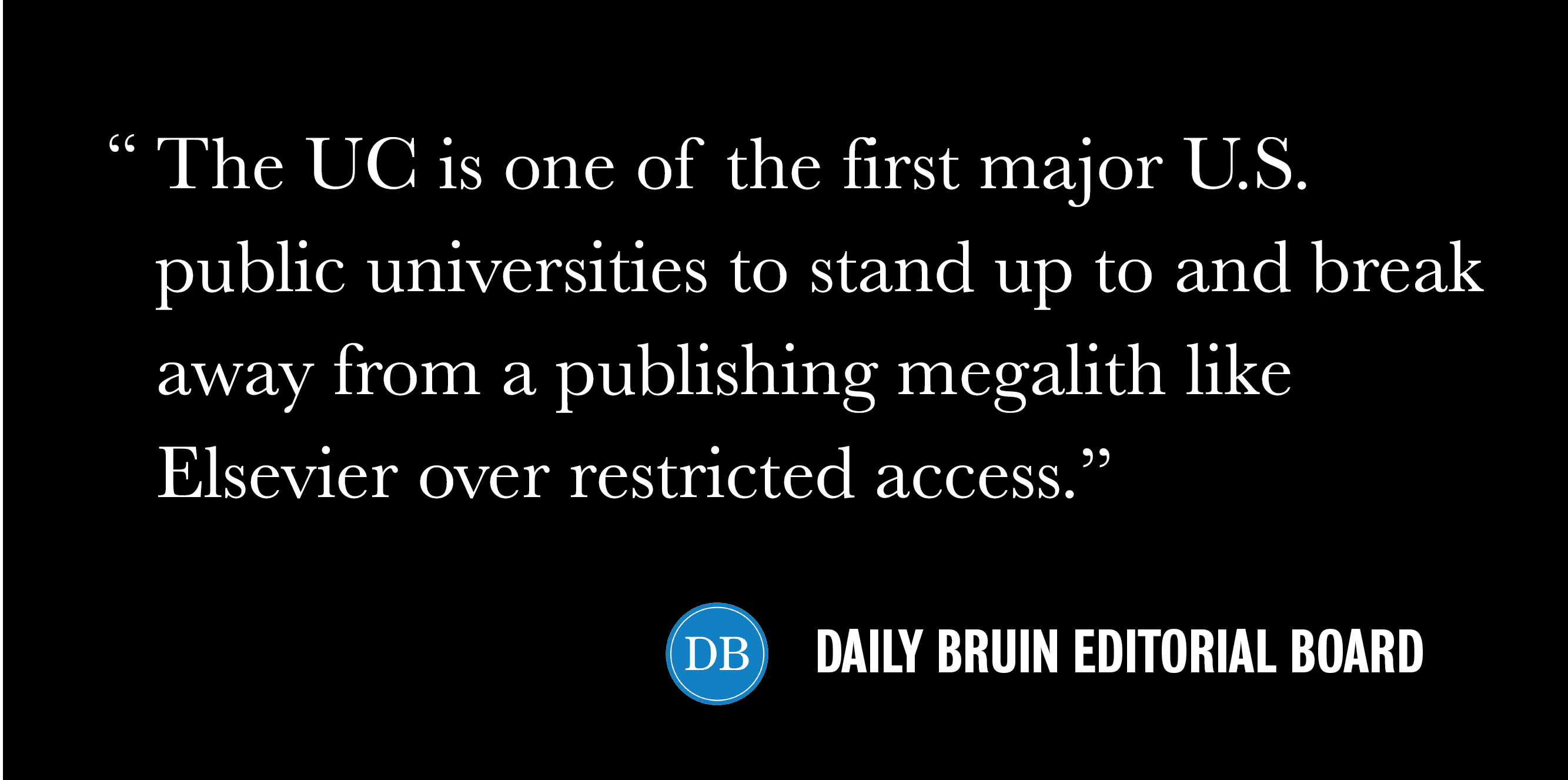Editorial: UC ends deal with scientific publisher, moves toward open access to knowledge

By Editorial Board
March 6, 2019 10:02 p.m.
Sometimes you have to walk away.
The University of California announced last week it is cutting ties with Elsevier, the world’s largest scientific publisher. The University will no longer be paying millions in subscription fees each year to get its campuses access to published work and the ability to share their research.
This decision appears to have rocked the publishing world. The UC is responsible for nearly 10 percent of the nation’s publications. Its clout as the foremost public research institution has put its decision in the spotlight.
And rightfully so. The traditional publishing paradigm involves paying not just for access to articles, but also for the rights to share your work with others – an overpriced model that suffocates the transfer of knowledge.
The UC challenged that by engaging in negotiations with Elsevier in July. The University has vied for a “read-and-publish” subscription model that entails a singular payment for access to articles and the ability to make its researchers’ work immediately available to the public. Elsevier offered up something the University liked, but not before – per University accounts – slapping on an unseemly price tag.
The deal was called off. And as far as the UC is concerned, it should continue to stay that way.
The University’s decision to break off from Elsevier sends a powerful message that information monopolies are antithetical to the mission of research institutions – a message faculty and researchers largely appeared on board with because of town halls and regular updates. That same level of interfacing with the research community is necessary for the UC to navigate the untested waters of open access.
And the waters really aren’t that tested. The UC is one of the first major U.S. public universities to stand up to and break away from a publishing megalith like Elsevier over restricted access.
Much of the local resistance to the Amsterdam-based company’s burly prices have come in the form of petitions. And save for a couple of university-wide initiatives to share knowledge with the public, publishing in the U.S. has been confined to a handful of publishing strongholds who charge a pretty penny for their services. It’s no wonder Elsevier made a whopping $1.17 billion in revenue in 2017 – what amounts to an insulting 37 percent profit margin.
But a scientific future outside of Elsevier is undoubtedly possible. All universities in Germany and Sweden cut ties with the company in 2018, following failed negotiations for open access to research they published. In fact, Germany sought a similar “read-and-publish” deal to the UC’s, and a conglomeration of 700 German libraries and institutions signed a three-year, open-access contract in January with the publisher Wiley. That deal made history as the first-ever deal between a research-focused nation and a publisher.
It’s the kind of deal the UC can score too. And the ramifications of that brokerage stands to significantly shape research publishing in the nation.
Certainly, the road to an open-access deal has its obstacles. For one, Elsevier still commands an impressive suite of journals, and it’s foreseeable UC researchers seeking to publish their work will have to weigh the readership of open-access with that of existing platforms. The same applies to accessing other institutions’ research still published through traditional channels.
But the University and its researchers have taken the first step toward more democratized access to knowledge. And the fight for that ideal and its adoption was never going to be easy.
Just ask the UC when it walked away from the negotiating table.

